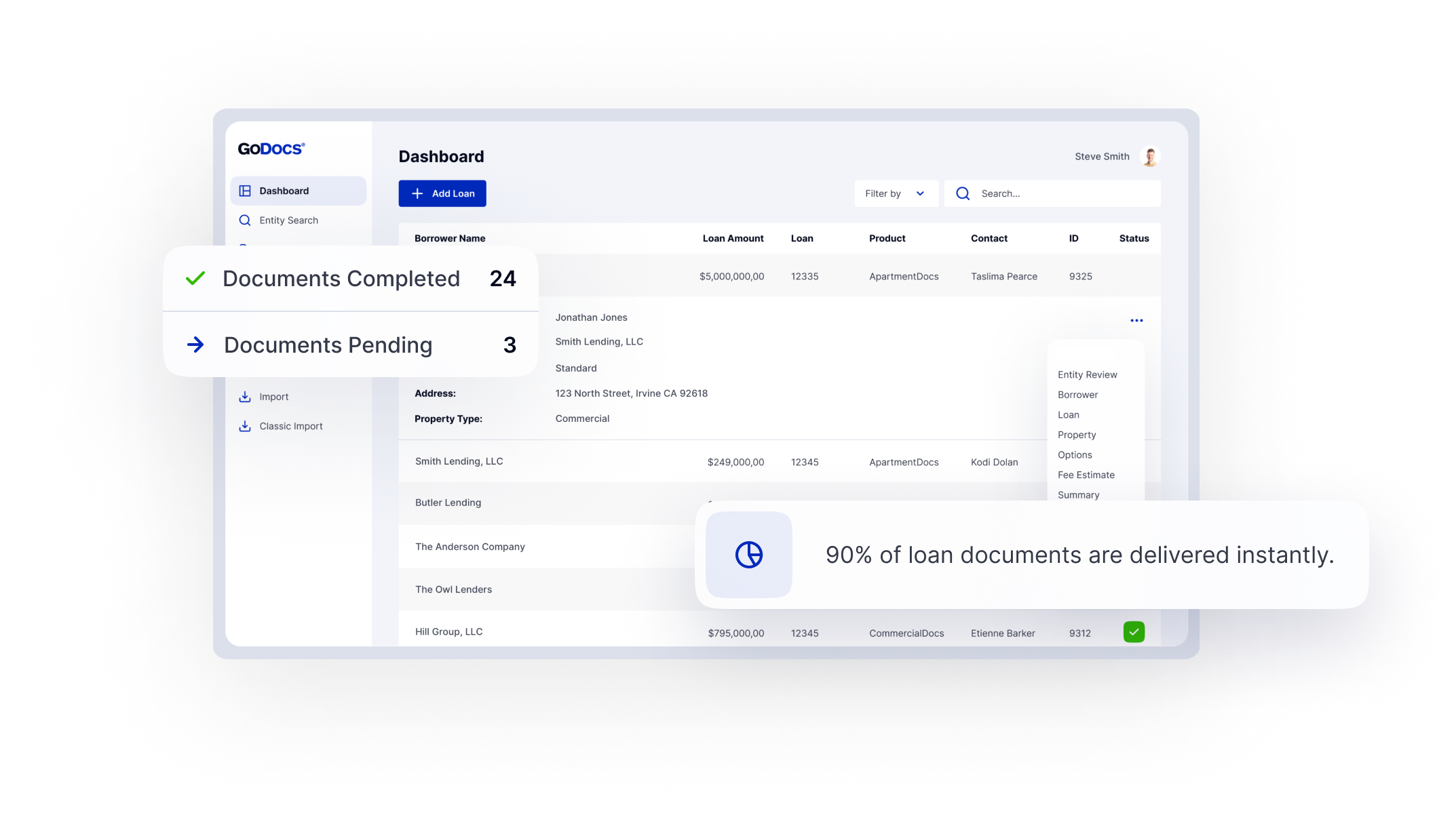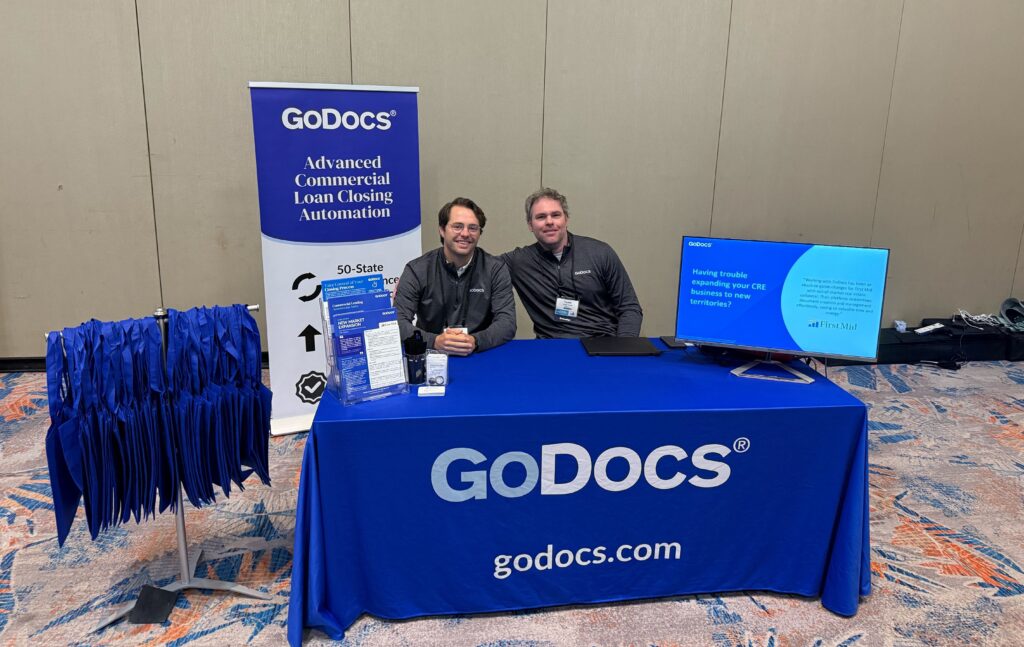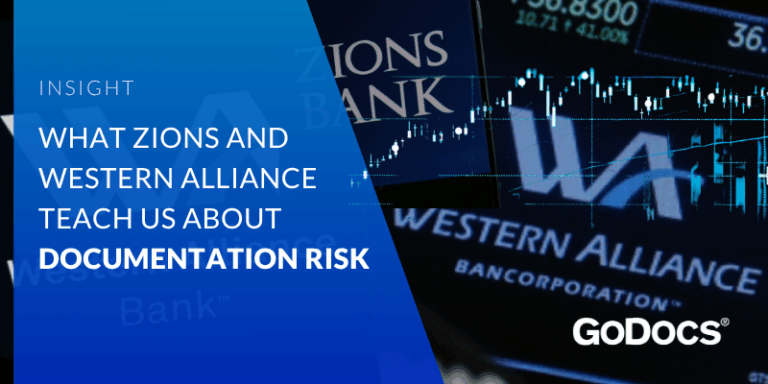I recently had the opportunity to attend the Mortgage Bankers Association’s Commercial/Multifamily Finance Servicing and Technology Conference in Hollywood, Florida. The event brought together a strong mix of lenders and vendors to network, discuss business opportunities, and hear from expert panelists. Topics ranged from the overall health of the commercial real estate market to the growing influence of AI. Here are a few takeaways.
Key Themes
CRE origination is down relative to recent years with office and multifamily collateral origination most affected.
There is ~$4.8 trillion in outstanding debt secured by CRE properties. In 2024, lenders originated ~$500 billion, which is down from a record year of over $800 billion in 2021. In addition, ~$957 billion in CRE mortgages are maturing in 2025, which is ~20% of the aforementioned total outstanding debt; this wave of impending maturities will force lenders to have tough conversations with borrowers on extensions and refinancings.
Of the four main types of commercial property, i.e., office, retail, industrial, and multifamily, office and multifamily origination have been the most susceptible to change in investor sentiment which, in turn, has led to less volume relative to retail and industrial origination.
With respect to office properties, performance varies dramatically by market. Of the ~$4.8 trillion in total outstanding debt, office origination only accounts for ~$700 billion. Less office origination is due in part to the precariousness inherent in keeping existing tenants given demand for office space has been down; roughly half of tenant leases began before the pandemic and those tenants may not necessarily be mandating a return to office or may move in search of less space and/or more favorable lease pricing.
As to multifamily properties, the ramp up in new development during the pandemic has subsided with a new slew of such housing coming online. Once “hot” markets, which include Nashville, TN and Austin, TX, have arguably been oversupplied. In response, developers have corrected; while the multifamily sector remains healthy, it is correcting to respond to individual markets’ demands.
Artificial intelligence is here to stay but must be utilized responsibly.
AI systems can learn from data and adapt their behavior. Unlike traditional software which functions based on fixed rules and logic, AI can make autonomous decisions which can complement companies’ business processes. Once implemented, AI can save time and money for companies by producing efficiencies thereby yielding cost savings.
Despite the potential time and cost savings, AI is not a replacement for legal expertise and guardrails are a must.
AI is widely known to “hallucinate,” meaning it is prone to produce answers/decisions which are false or nonsensical. During a panel on this topic one panelist commented: if AI is used 10 times, you will get a correct/reliable answer 8 out of 10 times; however, 2 of those 10 times, AI will give you a completely irrelevant answer.
Key areas of AI implementation for commercial lenders are financial statement analysis, document management, inspection review, and risk assessment. That said, AI development is still nascent despite the outsized demand and reliance companies are placing, or looking to place, on it. Further refinement and development is necessary. Provided AI is developed to a point where it can ensure more reliable answers/decision making, it can certainly be utilized to personalize borrower experiences and services, predict market trends, and advance customer service.
Despite its potential to increase efficiencies and lower costs associated with processes and practices companies have historically used traditional software and people to complete, there are significant legal and ethical concerns which should not be discounted or dismissed. Those concerns range from sensitive data being appropriated, AI potentially producing answers/decisions which perpetuate bias and inequity, and, in connection therewith, who is ultimately accountable for AI’s output; AI is bound to be subject to regulation and governments will respond accordingly.
As of now, and for the foreseeable future, AI is an augmentation tool, not a replacement tool, which requires human oversight to ensure proper use and credible and correct decision making.
The 2025 MBA Commercial/Multifamily Finance Servicing and Technology Conference offered valuable insights into the evolving landscape of CRE finance. From the notable decline in origination volumes, particularly in the office and multifamily sectors, to the promise and pitfalls of integrating AI into commercial lending workflows, the event highlighted both challenges and opportunities shaping the industry. As the market continues to adjust to shifting demand, upcoming debt maturities, and rapid technological advancement, one thing is clear: collaboration, adaptability, and responsible innovation will be key to navigating what lies ahead.
Senior Director of Legal and Compliance at GoDocs
“Can AI create legally compliant commercial closing documents that withstand rigorous review?”
Between regulatory pressure, growing competition, and the push to digitize, AI looks like a game-changer. But is it?
Experience the Future of Commercial Loan Document Automation
Discover GoDocs, the leading SaaS solution powered by the sharpest legal minds in CRE! Schedule a demo today to elevate your lending process and to gain your competitive advantage.







